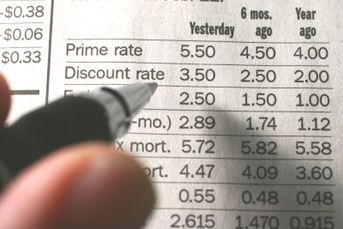The truth about loss aversion
For all the gains we've made in the evolution of market data — now a massive information industry of indices, surveys, and reports — economics continues to fall painfully shy of a hard science.
For all the gains we’ve made in the evolution of market data — now a massive information industry of indices, surveys, and reports — economics continues to fall painfully shy of a hard science. That’s why, when it comes to making good investing decisions, I still fall back on the ancient Greek aphorism, “Know thyself.” The phrase was supposedly uttered by the Oracle of Delphi and became such a cultural fixture that it was inscribed over the doorway to the Temple of Apollo at Delphi.
For advisers, this tidbit of Greek philosophy has unique significance. For starters, understanding what clients actually want is critical to building and maintaining good relationships. And in order to make that happen, the client first must understand himself or herself. I’m certainly not the first to suggest this, nor will I be the last — there’s a reason most advisers begin a client relationship with some sort of risk appetite assessment.
But we all know such assessments never tell the whole story. Even after understanding the client’s risk appetite, there can be a lot of roadblocks standing between the client and eventual satisfaction with his or her investing decisions. Take the current investing environment, for example. We’re in a period where equity volatility and the potential for rising interest rates are sharing the same space. And unfortunately, it’s volatile periods like these where loss aversion really starts to kick in.
The term “loss aversion” was first coined by Amos Tversky and Daniel Kahneman and refers to the behavioral economic concept that explains why people hate losses more than they like gains. To illustrate, consider a situation where you could either accept $500 or face 50-50 odds of winning $1000 or nothing at all. Most people would take the $500 — a bird in the hand is worth two in the bush. However, when you ask people whether they’d rather lose $500 or face 50-50 odds of losing $1000 or nothing, those same people would rather take the coin toss. Those same “rational” investors who prefer solid gains are willing to gamble more just for the possibility of avoiding a loss. That’s loss aversion in action.
This is an especially timely issue because investors have two extremely different experiences in their heads from the past five years: on one hand, the crash of 2008-2009 taught them that big losses are possible in investing — you’d be hard-pressed to find someone who didn’t lose money during that time. On the other hand, the past year saw 30% gains in the S&P 500, and so people also know that the market is capable of dishing out large capital gains as well. This explains why today’s equity volatility is so hard for many investors — it feels just like a coin toss. Every dip in the market feels like a correction; every incremental gain feels like the bull market is going strong.
But as we know, people don’t like a coin toss, and that discomfort can lead to mistakes. When we invest based on emotions, we can make bad decisions — decisions that can lead to loss. Nervous investors might liquidate assets, put them in “safe vehicles” such as money market accounts, and then proceed to time the market until every investment decision becomes stressful.
So how can advisers help their clients deal with feelings of loss aversion? Turns out, the answer isn’t what you’d think. A 1997 study by Thaler, Schwarz, Kahneman, and Tversky found that investors who got the most frequent feedback (and thus, in theory, the most information) took the least risk and earned the least money. This situation, known as myopic loss aversion, challenges perceived opinion about how much communication advisers should have with their clients — more isn’t always better.
I am by no means suggesting you insulate your clients from the market. On the contrary, communication may be key during times of volatility. More than that, however, I believe it is important to maintain a long-term mentality by setting an investment strategy that isn’t subject to the whims of a capricious equities market.
In Plato’s “Phaedrus,” Socrates uses the maxim “know thyself” as his explanation to Phaedrus for why he has no time for mythology or other far-flung topics. Socrates says, “But I have no leisure for them at all; and the reason, my friend, is this: I am not yet able, as the Delphic inscription has it, to know myself; so it seems to me ridiculous, when I do not yet know that, to investigate irrelevant things.” I use this as a parallel to my own life —I have no time to analyze the little short-term fits and starts of the equities markets; and the reason, my friend, is this: until I’m comfortable with my own risk appetites, I try to avoid making drastic investment decisions.
Mike West is senior partner and CEO of BPV Capital Management. West’s family office began in 2001, transitioned into an RIA firm in 2009, and then into mutual fund management in 2011. West has years of entrepreneurial and executive management experience with a background in financial management, strategic planning, mergers and acquisitions, and business development.
Learn more about reprints and licensing for this article.





